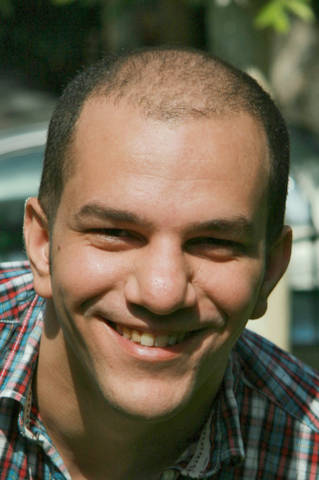Egypt: a country raped by its guardians
By Osama Diab
Dear generals, you are like a therapist abusing rape victims, so don't be surprised when Egyptians revolt against your cruelty.
Thursday 24 November 2011
Do not be deceived by the laughs and the singing in Tahrir square. Egyptians are in fact traumatised and this is merely their way of dealing with the trauma. It is from this anguish that their incredible courage is derived.
The protesters realise that the enemy, who is armed to the teeth and hiding behind shields and helmets, fears nothing more than facing an unarmed young man, or woman, in civilian uniform, armed only with their convictions and absolutely no fear of dying. The protesters understand that lacking rifles, gas canisters and armoured vehicles, the only weapon they possess is sheer determination and the unshakeable willingness to make some value of their lives by putting them on the line for the right cause.
They want to restore their pride at any cost, even if the price is their souls. Since they live without dignity and their lives are not valued by society, they would rather live as heroes in the eyes of their family and friends, and among their comrades on Facebook. Forsaken as living souls, they seek their redemption by facing down the regime's death machines.
My dear generals, this is a country in trauma whose people were dehumanised by you, so don't expect them to act rationally and responsibly now. Don't ask them to go back to work and rebuild the country. They will only rebuild a country that they own, in which they have a real stake. What is the point of rebuilding the country if you, your business elite and your foreign investor friends will reap the fruits of their hard work and leave them struggling to make ends meet and die in the queue for subsidised bread, which they call “ayesh” (“life”) because their sustenance depends on it?
Egyptians under your tutelage, my dear generals, are like rape victims who have been raped by their therapist, who is meant to give them emotional and psychological support. It doesn't just stop there, the therapist, in whom they initially trusted, tries to convince them that systematic rape is an essential part of their recovery. He tells them that the solution to their problems, is not getting rid of him, but to focus on their studies, learn how to play the guitar or possibly repaint their room. No Sir, the solution is to get rid of you, as soon as possible and by whatever means possible.
State violence doesn't breed violence. It breeds the desire to make a statement. A statetment that is a lesson for would-be tyrants. They want to produce an image that will inspire future generations and warn future rulers. They want to be the focal point of the next elected president's inauguration speech, and they will be.
They want to be the centre around which their future nation revolves, and the light under which democracy and human rights flourish. They want to be the past that future generations will remember with pride and cherish, while working together to prevent from being repeated ever again. Violence doesn't breed violence, but breeds the desire to live as proud martyrs in future history books rather than as forgotten, voiceless citizens in the contemporary annals of neglect.
The conservatives will carry on condemning the ‘violence', but this violence is nothing but a proof of life – evidence (to themselves more than anyone else) that they are still human. News reports will talk about how this is affecting share prices, investors will freak out, and big hotels will ‘suffer' from receiving no tourists, but many of those on the front line never owned stocks, possessed bank accounts, or went on holiday, so why would they give a damn now about the numbers and arrows on the holy markets' computer screens? Investors neglected Egypt's marginalised and crushed population while they were accumulating their wealth, so it is only fair for the protesters in turn to neglect the gamblers of the stock exchange while they fight to win back their humanity.
This article is published here with the author's permission. © Osama Diab.

